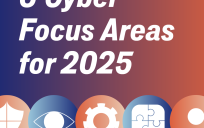 Consider a digital coach to help strengthen employee skills, ease adoption of new processes, and promote a harmonious environment.
Consider a digital coach to help strengthen employee skills, ease adoption of new processes, and promote a harmonious environment.
Many offices run with a mixture of people whose lack of technical proficiency may cost managers time and effort. Subsequently, productivity, deployment, security and compliance may suffer due to a skills gap – the empty space between tasks and abilities. It is easy to assume that only system administrators, software developers or network specialists need tech skills. What about everyone else?
Most office workers are familiar with office programs and how to communicate using email. Even staff members who don’t use computers may be expected to get messages on a computer or device. However, everyone on the workforce may need to submit time cards, time off requests and monitor office benefits online.
It is possible that a digital coach will provide support and guidance where needed and can reduce any skills gaps.
Start With an Assessment
To figure out whether a skills gap exists, review all job descriptions with your Human Resources (HR) Director. Check the employees’ abilities and experience based on their resumes. Then, compare the two sets of information. If everything matches up, great! But, if you notice a lack of skills or experience, take note and move to the next step.
Seek Feedback From the Staff
Provide employees with a questionnaire on whether they feel equipped to accomplish goals, qualify for promotions, or update skills. That’s because some employees who listed skills on their resumes might appreciate help with an upgraded version of a program. On the other hand, some employees may feel too deficient and not ask for any help.
Inform staff that this information will only be used to make things better for them. With your HR director, formulate a Standard Operating Procedure (SOP) for training, review and consultation.
Seek Out a Digital Coach
Once you have identified a need, here are two ways to bring digital coaching on board:
- Hire experts: GovLoop Contributor Irene Koo‘s Harnessing a Digital Workplace Strategy notes the company Catapult’s outstanding record of success through digital coaching. The firm’s Director of Public Sector Cloud Strategy and Sales Michael Kennedy reports that successful modernization shares the stage with the company’s creative and engaging approach to digital coaching.
- Use MOOCs: If the budget is slender, you could provide a library of courses from any of many Massive Open Online Courses (MOOCs). Amazingly, MOOCs are free to use under specific terms. For an excellent example, check out GCFLearnFree.org (a program of Goodwill Community Foundation® and Goodwill Industries of Eastern NC Inc.®), which offers training in academics, computer, smartphone and tablet basics, online safety, and Microsoft Office among others.
The skills gap is an ever-present possibility due to the speed of technological advances and the diverse educational and experiential backgrounds of potential and present team members. Therefore, the digital coach should become an essential part of the professional environment and team culture to increase job satisfaction, reduce turnover rates, and boost creative collaboration.
Anita Davis is part of the GovLoop Featured Contributor program, where we feature articles by government voices from all across the country (and world!). To see more Featured Contributor posts, click here.





I’d never heard of this concept before, but it’s brilliant in its simplicity, and probably useful for so many kinds of workplaces!
Thank you Catherine! It actually came to me as I worked at one of the first Public Computer Centers established in the U.S. Virgin islands. Many people were failing to complete a grant funded digital literacy program that ran concurrent to a broadband expansion and community education program.
Not being an actual teacher myself, I began to locate MOOCs that addressed basic needs and coached them through them. Soon, the digital literacy certificate completion rates at that library improved dramatically. For the life of the program, around 90% of the basic course certificates within the USVI public library system were earned at that library.
Not because I am so amazing (although I tried to be 🙂 ) – but because I think I found the missing piece. I must assume that with all the people who also used the MOOCs we found to get better jobs or learn to run their businesses, that the same principle applies for work.
I return once per month for digital coaching sessions and we have a train the trainer program to help people become digital coaches – even if they are not what they consider “computer experts”. It’s all anecdotal for me, but it seems to be working.